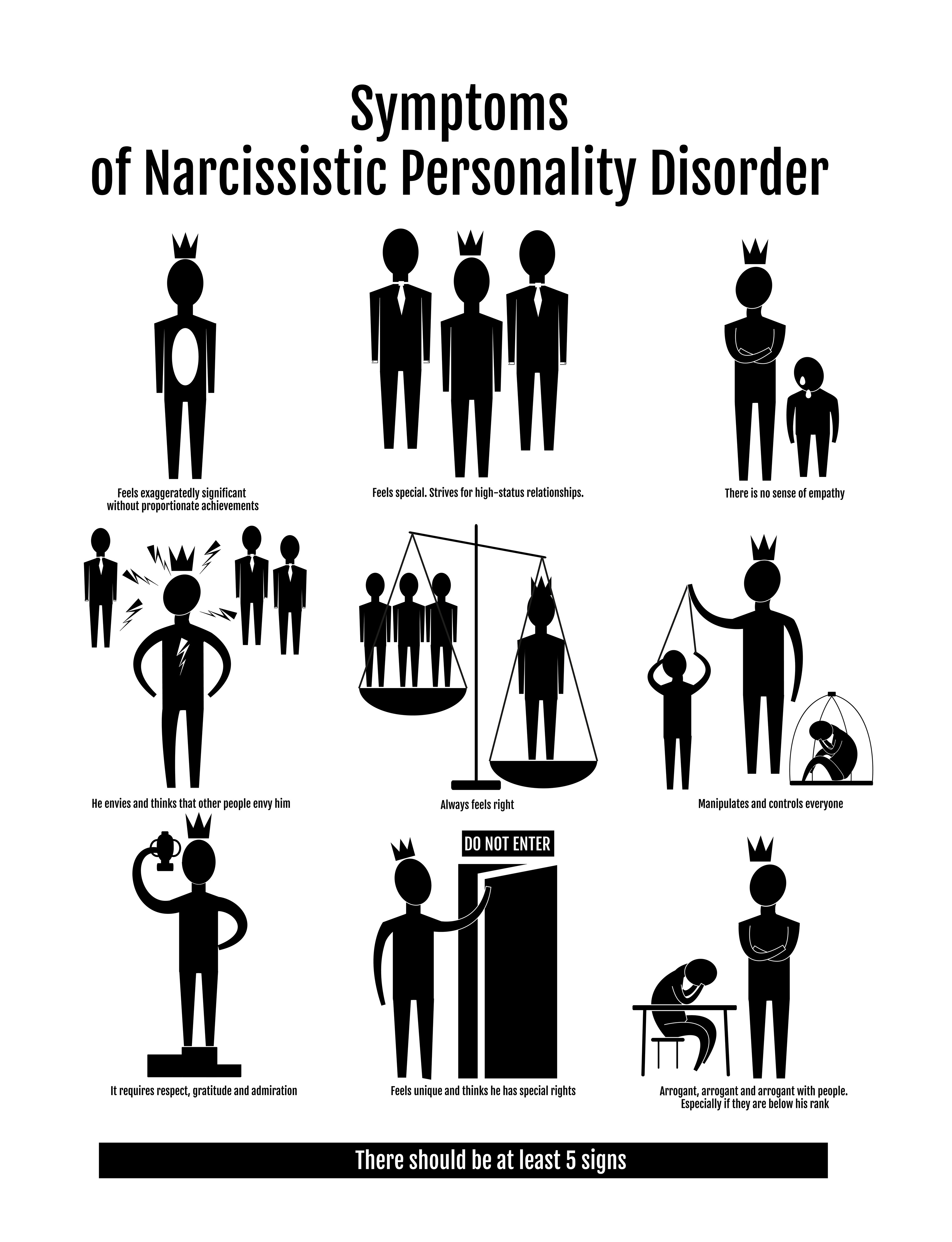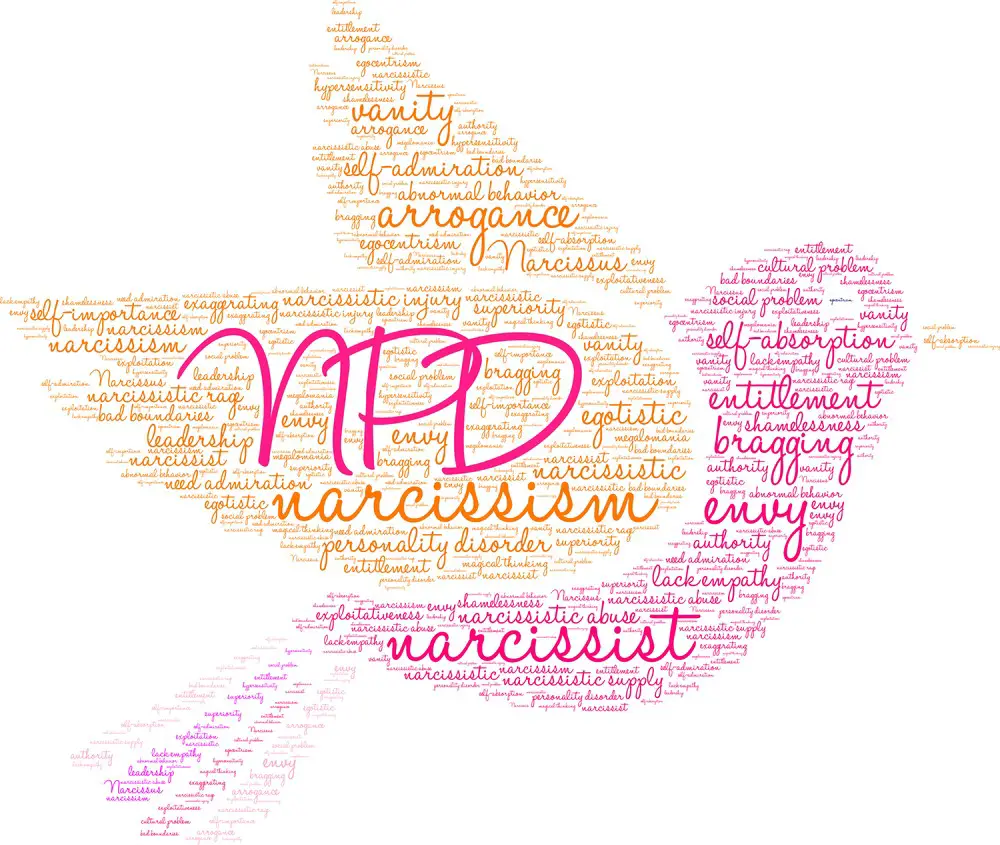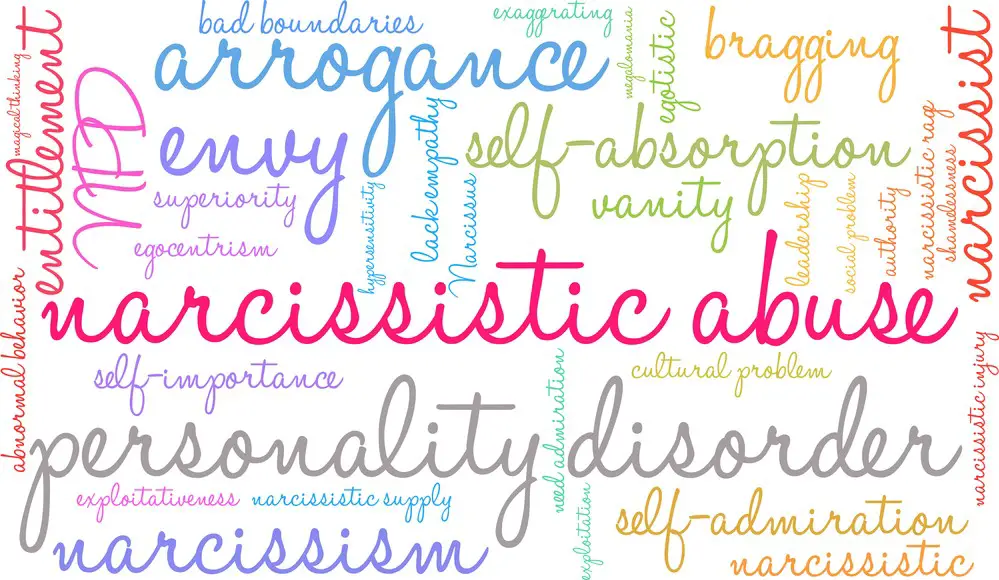As a BetterHelp affiliate, we receive compensation from BetterHelp if you purchase products or services through the links provided
Divorcing a narcissistic husband can be a challenging and emotionally draining experience. Narcissists have an inflated sense of self-worth and a lack of empathy for others, often resulting in manipulative and controlling behavior. When this toxic personality is brought into a marriage, it can lead to a host of difficulties and, ultimately, the decision to end the relationship.
Taking the step to divorce a narcissist necessitates a comprehensive understanding of the emotional and psychological implications involved. Moreover, the affected partner must be well-prepared for the legal challenges that may arise and be aware of the potential impact on children. With the right planning and strategies, one can emerge from this process with a sense of healing and growth.
Key Takeaways
- Understand the emotional and psychological aspects of divorcing a narcissist.
- Be prepared for legal challenges and have effective strategies in place
- Consider the effects on children and focus on post-divorce healing

Recognizing Narcissism
Distinguishing Traits
Narcissism is characterized by an inflated sense of self-importance, a constant need for attention and admiration, and a lack of empathy toward others. Some common narcissistic traits include exaggerating one’s achievements, manipulating others, and exploiting relationships for personal gain. Narcissists may exhibit grandiose fantasies, envy, and a strong sense of entitlement.
Narcissistic Personality Disorder (NPD)
Narcissistic Personality Disorder (NPD) is a personality disorder defined by the Diagnostic and Statistical Manual of Mental Disorders (DSM-5). The criteria for diagnosing NPD include:
- Grandiosity with expectations of being superior or special
- Preoccupation with fantasies of unlimited success, power, or beauty
- Belief in being unique and only understood by other high-status individuals
- Excessive need for admiration
- A sense of entitlement
- Exploitative behavior in interpersonal relationships
- Lack of empathy
- Envy of others or belief that others are envious of them
- Arrogant, haughty behavior or attitudes
To be diagnosed with NPD, an individual must have at least five of the abovementioned criteria.
 Covert Narcissist
Covert Narcissist
Though still exhibiting narcissistic traits, the covert narcissist often presents themselves differently than an overt or grandiose narcissist. While grandiose narcissists are openly self-centered and crave attention, covert narcissists may appear humble, introverted, and insecure. However, they still possess an underlying sense of entitlement and superiority, making them just as harmful to relationships as their overt counterparts. Recognizing the traits of a covert narcissist can be crucial in identifying the need for self-protection and setting boundaries in relationships with them.
Emotional and Psychological Implications
Understanding Gaslighting
Gaslighting is a common manipulation tactic narcissistic individuals use to cause doubt and confusion in their partners. They achieve this by distorting facts, telling lies, and denying previous actions or statements. This form of emotional abuse can severely impact the victim’s emotional health and perception of reality.
For example, a narcissistic husband may repeatedly insist that a conversation never occurred or accuse his spouse of being overly sensitive. This manipulation can cause the victim to question their memory and sanity, making it difficult to trust their judgments and thoughts.
 Dealing with Narcissistic Rage
Dealing with Narcissistic Rage
Narcissistic rage is a phenomenon that occurs when a narcissist perceives a threat to their self-esteem or self-worth. This often manifests in anger, aggression, or passive-aggressive outbursts. It’s important for those divorcing a narcissist to be aware of the potential for such rages and develop strategies to cope with them.
Some tips for dealing with narcissistic rage include maintaining a calm demeanor, setting boundaries, and avoiding engaging in emotionally charged arguments. Being aware of the triggers for their rages and preparing for them can help reduce the intensity and duration of these incidents.
The Absence of Empathy
A lack of empathy is a defining characteristic of narcissistic individuals. They often have difficulty understanding or acknowledging the feelings of others, which can make them appear cold and indifferent. This can be particularly distressing for those divorcing a narcissistic husband, as they may feel unheard and invalidated throughout the process.
It’s essential to acknowledge this lack of empathy and recognize that the narcissistic spouse may never fully understand the emotional implications of the divorce. While this can be disheartening, it’s crucial to protect one’s emotional well-being and seek support from loved ones and mental health professionals.
Planning for Divorce
When divorcing a narcissist, it’s crucial to have a well-thought-out plan in place. This plan should include choosing the right legal support, understanding the legal process, and seeking therapy and support.
Choosing Your Legal Support
Finding the right attorney is an essential step in navigating a divorce from a narcissistic husband. An experienced divorce lawyer will be familiar with handling complex cases like these. They can guide on collecting evidence, negotiating with the narcissist’s attorney, and addressing legal fees. It’s important to select a lawyer who is confident, knowledgeable, and capable of professionally handling such a challenging situation.
Understanding the Legal Process
Divorce can be a long and difficult process, particularly with a narcissist. Expect the narcissist to challenge you emotionally and legally, as they often attempt to control and manipulate the situation. It’s important to understand your rights and the different stages of the divorce process to protect yourself. Remember that legal proceedings may involve various agreements, such as child custody, child support, and the division of assets. Maintain a clear and neutral stance throughout the process.
Importance of Therapy and Support
Going through a divorce with a narcissist can be emotionally draining. Engaging in therapy or counseling is essential to help cope with the stress and emotional challenges that will arise from the separation. Seeking support from therapists, friends, and family members can provide a valuable network to rely on. Participating in support groups is another option, as it allows you to connect with individuals who have experienced similar situations.
 Legal Challenges and Strategies
Legal Challenges and Strategies
Financial Aspects and Division of Assets
When divorcing a narcissistic husband, one can expect challenges in the financial aspects and division of assets. Family court may need to intervene in settling finances related to the divorce. Documenting everything regarding assets, income, expenses, and debts is crucial. A detailed account will help family law professionals assess the equitable division of assets. Utilizing financial experts to uncover hidden assets or underreported income can be beneficial.
Gathering and Presenting Evidence
Gathering and presenting evidence is critical in a divorce involving a narcissist. Evidence may include documentation of financial records, abusive behaviors, neglect, or infidelity. Keeping a journal and recording incidents will help build a strong case. Consult a legal professional to ensure your evidence-collection method complies with the law. Third-party witnesses, such as therapists, teachers, and family friends, can provide crucial testimony regarding the narcissist’s behavior.
Understanding Discovery in Divorce
Discovery is a stage in the divorce process where parties exchange information and documentation required by the court to resolve their case. It allows both parties to gather the necessary evidence and ensures a fair divorce settlement. In a narcissist divorce, discovery becomes essential since the narcissist might attempt to manipulate or withhold critical information.
During the discovery process, requests for production and interrogatories are common. Requests for production involve asking the other party to provide documents, such as financial records, while interrogatories are questions requiring a written response under oath. Depositions, in which an attorney questions a witness under oath with a court reporter transcribing their testimony, might also be utilized to gather evidence.
Using experienced family law professionals will help navigate the legal challenges and employ the appropriate strategies for a favorable outcome in divorcing a narcissistic husband.
Effects on Children
 Addressing Domestic Violence
Addressing Domestic Violence
When divorcing a narcissistic husband, it is crucial to consider the impact on the children. Children exposed to domestic violence can experience long-lasting emotional, cognitive, and behavioral effects. Parents need to address these concerns promptly to minimize any lasting damage. A few strategies that can help include:
- Seeking professional help: Engaging the assistance of a mental health professional can guide how to discuss and manage the effects of domestic violence on children. Therapists and counselors can offer valuable insights and coping strategies for both the parent and the child.
- Encouraging open communication: Establishing a safe space for children to discuss their feelings and thoughts is essential in promoting their emotional well-being. Parents should foster an environment that encourages open and honest dialogue. This can help children process their emotions healthily and constructively.
- Taking legal measures: Protecting the children should be a priority. Parents should work closely with legal counsel to obtain restraining orders, child custody agreements, and other documents that may safeguard the children’s well-being.
 Maintaining a Healthy Environment for Children
Maintaining a Healthy Environment for Children
In addition to addressing domestic violence, creating a healthy environment for the children when divorcing a narcissist husband is important. While this can be challenging, adopting certain strategies can aid in this process:
- Establishing boundaries: It is essential to establish clear boundaries between the children and the narcissistic parent. This will help to prevent manipulation and additional harm to the children’s emotional well-being.
- Encouraging a support network: Surrounding children with supportive friends and family can help provide a stable environment amid the turmoil of divorce. This support network can offer reassurance and guidance to assist in navigating the difficult process.
- Promoting self-care: Encouraging children to focus on their physical, emotional, and mental well-being can help alleviate some of the toxic effects of their environment. Adopting healthy habits, such as exercise, balanced nutrition, and hobbies, can improve mental and emotional health.
In conclusion, taking the necessary steps to address domestic violence and maintain a healthy environment for children is crucial when divorcing a narcissistic husband. By implementing the specific strategies outlined above, parents can contribute to their children’s long-term well-being and overall resilience.
Post-Divorce Healing
Finding Strength
After divorcing a narcissistic husband, focusing on healing and rebuilding one’s sense of self is essential. One of the first steps in this process is finding the inner strength to move forward. It may be helpful to practice self-compassion and acknowledge the courage it took to leave a toxic relationship.
Joining support groups or working with a therapist can effectively build resilience and gain a sense of empowerment. These professionals are well-equipped to provide guidance and coping strategies tailored to each individual’s unique situation.
Utilizing Resources for Healing
Beyond finding inner strength, taking advantage of available resources is vital to aid in the healing process. Therapists and mental health professionals can help navigate the complexities of healing and develop customized plans to facilitate recovery.
Additionally, maintaining physical health by exercising regularly, eating well, and getting enough sleep can positively contribute to healing. Keeping a routine and setting aside time for self-care allows for personal growth and reflection.
Moreover, online resources, such as articles, forums, and virtual support groups, can be valuable. Connecting with others who have experienced similar situations can offer a sense of community and provide useful advice for overcoming challenges related to divorcing a narcissistic husband.
Remember, healing is a journey, and the course may differ for each individual. It requires time, patience, and determination. However, with unwavering strength and the support of available resources, healing and growth are achievable.
Frequently Asked Questions
 How can I protect myself during the divorce process?
How can I protect myself during the divorce process?
To protect yourself during the divorce process, consider taking the following steps:
- Engage a competent and experienced attorney who specializes in divorces involving narcissistic spouses.
- Limit your interaction with your spouse and develop strong boundaries.
- Avoid engaging in their attempts to provoke you and stay focused on legal matters.
What are the best strategies for divorcing a narcissist with a child?
When divorcing a narcissist with a child, consider these strategies:
- Prioritize your child’s best interests and work toward a custody agreement that ensures their well-being.
- Maintain clear communication with your child, addressing their concerns without negatively discussing your spouse.
- Keep thorough records of your spouse’s behavior and actions, especially if it may affect custody decisions.
How can I cope with the emotional pain of divorcing a narcissist?
Coping with the emotional pain of divorcing a narcissist may involve:
- Seeking support from friends, family, or a therapist to help process the ordeal.
- Practicing self-care and focusing on your well-being during the divorce process.
- Reminding yourself of the reasons for the divorce and staying focused on your goals.
What reactions can I expect from my narcissistic spouse during divorce?
During a divorce, a narcissistic spouse may exhibit the following reactions:
- Attempts to control or manipulate the situation.
- Displaying an inflated sense of entitlement or victimhood.
- Acting aggressively, making false allegations, or engaging in other disruptive behaviors.
How can I financially prepare for divorce from a narcissist?
To financially prepare for a divorce from a narcissist, take these steps:
- Gather and maintain copies of all pertinent financial documents.
- Assess your current and future expenses, savings, and debts.
- Seek financial advice from a professional to plan for your post-divorce life.
Is it common for a narcissist to settle in a divorce, or will they fight?
Narcissists may be more prone to fighting in a divorce due to their entitlement and need for control. However, their decision to fight or settle ultimately depends on the individual and the divorce circumstances.
Jacob Maslow offers firsthand insights into the tumultuous world of divorcing a narcissistic partner. Drawing from his experiences and fortified by Lexapro and years in therapy, Jacob has been navigating the harrowing journey of court battles, custody disputes, and heart-wrenching alienation brought on by an ex-partner’s severe narcissistic tendencies. Despite these challenges, Jacob’s commitment to mental well-being is unwavering, as evidenced by his daily long walks—his chosen method to clear his mind. Believing firmly in the power of resilience and the human spirit’s ability to triumph over mental health challenges, he writes empathetically about narcissism and mental health. Jacob also helms a legal website, offering guidance and support to those trapped in similar battles, advocating for children’s well-being and proper co-parenting.
- 3 Ways Wearing a Hat Can Help Lower Your Stress Levels - April 19, 2025
- Breaking the Silence: Why Men’s Mental Health Matters More Than Ever - April 15, 2025
- How to Transform a Home’s Patio Space into a Relaxing Space - March 23, 2025
This site contains affiliate links to products. We will receive a commission for purchases made through these links.


 Covert Narcissist
Covert Narcissist Dealing with Narcissistic Rage
Dealing with Narcissistic Rage Legal Challenges and Strategies
Legal Challenges and Strategies Addressing Domestic Violence
Addressing Domestic Violence Maintaining a Healthy Environment for Children
Maintaining a Healthy Environment for Children How can I protect myself during the divorce process?
How can I protect myself during the divorce process?
